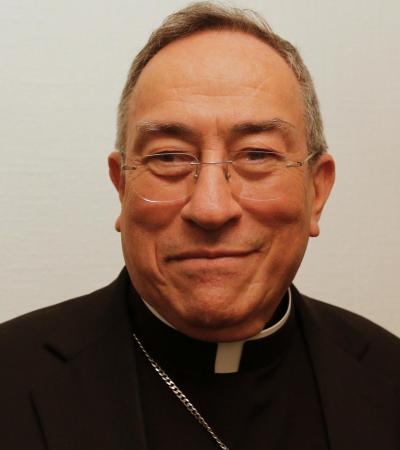Oscar Andrés Rodríguez Maradiaga, SDB, was born December 29, 1941. As a boy, he dreamed of playing the saxophone in a dance band or becoming a pilot. Instead, he entered the religious life and at age 58, he is the first cardinal in history from Honduras.
First ordained a priest in 1970, a Bishop in 1978, then the Archbishop of Tegucigalpa in 1993, Rodríguez Maradiaga was ordained Cardinal with the title of "St. Mary of Hope" on January 21, 2001. Multilingual, with degrees in philosophy and theology, a diploma in clinical psychology, and trained in classical piano, he is a rising star in the Latin American church. His campaign for human rights and the poor have won widespread praise. Cardinal Rodríguez is further admired as a dynamic pastor who brokered peace accords with rebels and led rebuilding efforts after a natural disaster.
Cardinal Rodríguez served as President of the Conference of Latin American Bishops (CELAM) from 1995 to 1999. Prior to that, he was Secretary General of the Latin American Episcopal Conference (CELAM) from 1987 to 1991. He has been a member of several Pontifical Councils, including the Council for Social Communications; the Council for Justice and Peace; and the Commission for Latin America. He was the Vatican's spokesperson with the International Monetary Fund and the World Bank on the issue of Third World debt. Rodríguez was also on the writing team for Ecclesia in America, which was the document presented by Pope John Paul II in 1999 based on the Special Synod for America.
In addition, he is the founder of the Catholic University of Honduras, "Our Lady Queen of Peace," and has been the recipient of many awards and honors, including the Central American Parliamentary decoration "Francisco Morazan." He also holds honorary degrees from Don Bosco University in San Salvador and the Catholic University of Taiwan in Kaohsiung. Cardinal Rodríguez is currently the President of the Episcopal Conference of Honduras, a post he will hold until 2002.
As President of CELAM in the late 1990s, he used the forum to denounce the region's foreign debt burden. He tends to stress the pope's distrust of extreme free market policies. "The colonialism of the past was based on warships and the new colonialism on money," he said. Like other cardinals, he has repeatedly spoken out against abortion and destruction of embryos in scientific work, but is considered less rigidly conservative than other Latin Americans elevated by John Paul.
He has spoken at Notre Dame on issues of Third World debt relief and has visited the University a number of times






